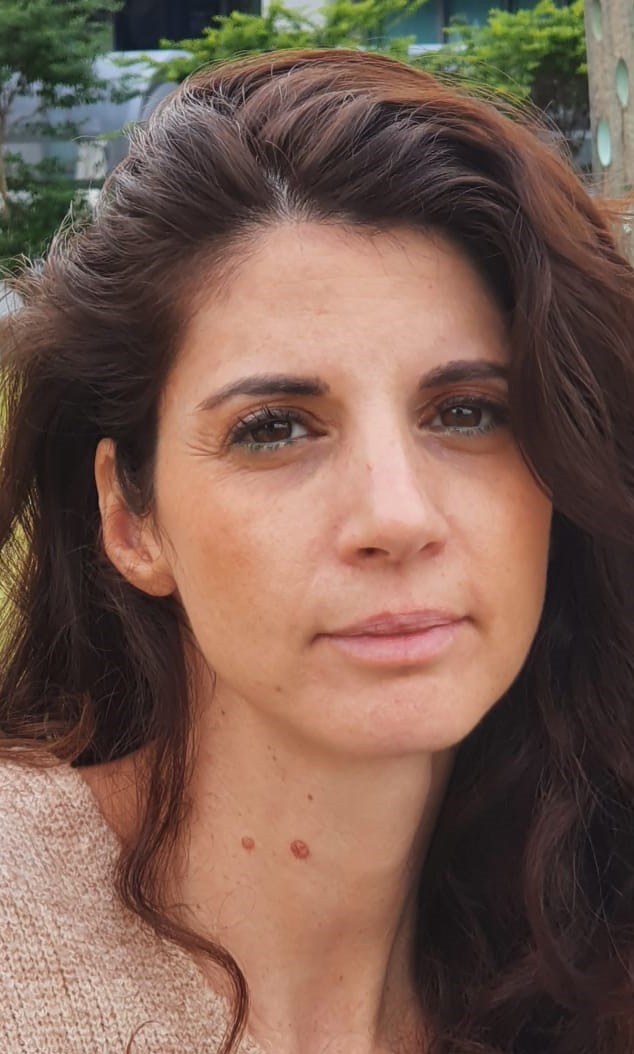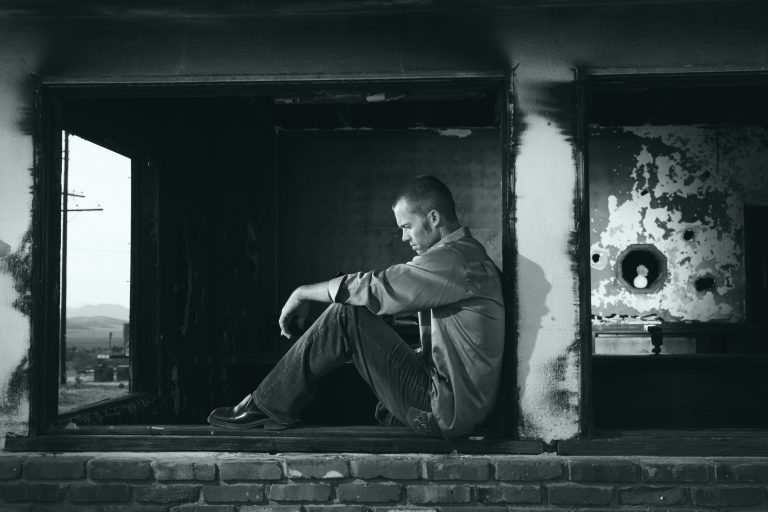“Treat cultural messages about sex and your body like a salad bar. Take only the things that appeal to you and ignore the rest. We’ll all end up with a different collection of stuff on our plates, but that’s how it’s supposed to work. It goes wrong only when you try to apply what you picked as right for your sexuality to someone else’s sexuality.”
– Emily Nagoski, sex researcher, author, and educator
When we try to make sense of our own sexuality, we might find a whole confusing mess of cultural conditioning, personal experiences, and discomfort that we need to sort through before we can know what we’d like on our plates at the salad bar. At the intersection of sexuality and chronic pain, there are a lot of conflicting feelings. Can we see ourselves as sexy, even if we don’t align with societal constructs of beauty and sexiness? Is it possible for us to experience sexual pleasure, even with the presence of pain in our lives? How can we feel good about ourselves sexually when our bodies often feel so dysfunctional? How can we feel comfortable communicating our sexual needs when we might already struggle with feeling like we’re a burden in our relationships? Each of us deserves to explore our individual sexual identities and preferences, and to find our sense of sexual comfort in our bodies and in the world.
Reclaiming our sexual relationship with ourselves
Our sex lives aren’t only about how we interact with our partners. A huge part of sexuality is how we feel and relate to ourselves as sexual beings. With all the internalized messaging about sex that we absorb from our surroundings, however, establishing a positive individual association with sexuality can be a big challenge. It takes a lot of time and patience to get outside the influence and shame that come from unrealistic sexual norms, and the pressure we may feel to conform to them. What, if anything, do we find sexy or attractive about ourselves when we strip away the effects of outside influence? How can we embrace our own unique sexuality without feeling like we need to be living up to someone else’s expectation of what we ‘should’ be? We all find our own answers to questions like these, but what’s important is that we take the time to ask them.
When the dominant sexual messaging of our culture tells us that we need to look a certain way, act a certain way, and fulfill a very particular sexual role, those of us with chronic conditions and pain are at odds with ourselves from the start. If we don’t look the way we’ve internalized that we’re supposed to, and don’t function the way our culture has conditioned us to believe that we should, then we may have a very difficult time experiencing ourselves as sexual beings. We also may not feel worthy of being seen as sexually appealing to someone else. When these negative sexual associations are made even more acute because of unpleasant or traumatic sexual experiences, this work of reclaiming our own sexuality becomes all the more difficult. As Emily Nagoski writes in her book ‘Burnout: The Secret to Unlocking the Stress Cycle’:
“Our bodies can disappoint us, and the world can punish us when our bodies aren’t what they “should” be. So we are not suggesting that you “love your body,” like that’s an easy fix. We’re suggesting you be patient with your body and with your feelings about your body.”
We are allowed to accept our bodies, including our so-called imperfections and symptoms, not despite them. It’s our right to explore for ourselves what is pleasurable and appropriate for us, and to familiarize ourselves with our own ideas about the roles that sex and sexuality play in our lives. It’s our right to communicate those preferences and ideals to our romantic and sexual partners, and to ensure that our needs are respected. Reclaiming our own sexuality reasserts our vibrancy as dignified individuals, and liberates us from the oppressive internalized ideas of sexual normativity we were spoon fed by our cultural upbringing.
Expanding our idea of sex & intimacy with our partners
Living with chronic pain, we often need to embark on the difficult and vulnerable journey of reframing what having a sexually satisfying life looks like. Conventional sexual ideology isn’t inclusive of those who manage conditions that can make sexual intimacy challenging, so we are tasked with figuring out what is right for us. If we have symptoms that make sexual intercourse difficult or impossible, that doesn’t mean we can’t achieve intimacy, pleasure, or even orgasm from other means, like oral or manual stimulation. If the pressure of trying to experience pleasure from sexual activity is too great altogether, we can explore less orgasm driven approaches to sexual contact. Massages, cuddling, hugging, and kissing are all important aspects of sexual connection, even if they have been deemphasized by our culture that places so much weight on sexual intercourse.
When our symptoms or feelings mean that sometimes physical touch is off the table, we can remember that the sexually stimulating and intimate aspects of relationships don’t exclusively play out in the bedroom. The little ways that partners show affection to one another are equally a part of sexual dynamics as touch. Conversations with our partners where we feel close and safe are investments in creating an intimate atmosphere. Emotional safety can allow space for more erotic elements of the relationship to surface when circumstances allow. What’s most important is that we respect ourselves and prioritize our needs. We don’t need to put pressure on ourselves, and we never have to go beyond what’s comfortable for us. If abstaining from sex is what feels the most appropriate, then we honor our needs by deciding not to have sex and not feeling obligated to satisfy someone else at our own expense. Learning to communicate with our partners to cooperatively find a mutually satisfying sexual dynamic can be a difficult process, but a process that’s worth it for the intimacy, trust, and safety that it can bring to our relationships.
The courage to keep talking about sex
One of the most important actions we can take, regardless of which approach we choose to address our challenges with sex and sexuality, is to keep talking about them. The stigma and discomfort surrounding open conversations about sexuality and sexual problems can’t be dismantled without courageous people. People who make themselves vulnerable enough to discuss issues that make us squirm, knowing that without having those uncomfortable conversations with partners, doctors, family, friends, and others facing struggles, there is little room for hope and growth. Shame is a powerful muzzle, and silence is one of the most fertile environments within which sexual problems continue to grow and worsen. The shame does not have to be ours, however. We can, with effort, disown the shame we appropriated from our culture, and feel proud to create room for sexual healing within ourselves, our relationships, and our world.
Reach out for help
Sexuality is a private matter, and for that reason many of us avoid talking about it. While using our discretion about who we talk to about sex is an appropriate thing to do, it’s also important that we know that we can talk about it. There are places to which we can turn for help in making sense of sexuality in our lives. We can seek assistance through personal therapy, couples therapy, or sex therapy. There are alternative sources of empowering wisdom like spiritual healing or tantra, and there is a world to explore of an endless variety of sex products that are available to help us experiment with new approaches to sex. There are forums and communities online, built by and for people navigating the unique sexual challenges posed by chronic pain. Our medical doctors can be consulted for the expertise that they might be able to provide in addressing specific symptoms that involve the intersection of chronic pain and sexual activity. We can use some, or all of these resources, and mine them for all the potential benefits that they may provide.
We have the final say
Sexuality is complicated before we factor in partners, and it’s made all the more complicated with chronic pain. Finding our own level of comfort with what sexuality means to us and how we explore that with ourselves and with partners is not easy. While not simple, it can be very rewarding to take control of our approach to sexuality. We’re not beholden to our culture’s expectations of what sexuality should look like, and we don’t need to suppress our own needs to make anyone else happy. Both in our sexual relationships with ourselves and with others, sorting through the issues that stand between us and a sexually rewarding life can be a difficult, but powerful process. We get to reclaim what sexuality means to us and how we’d like to explore it in our lives, and when we do, we open ourselves up to the potential of a sex life that is rewarding beyond what we may have thought was possible.





